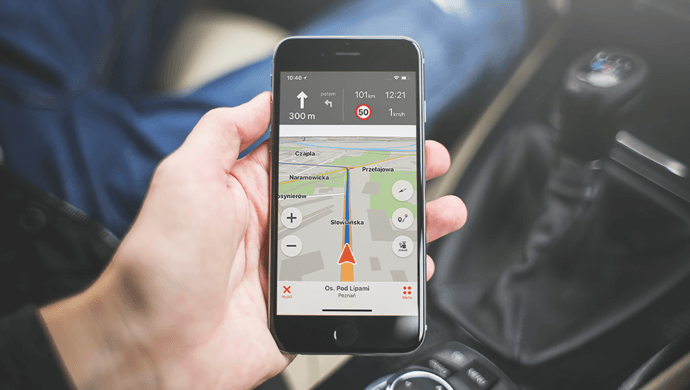Investment in the development of the digital aspect of business has not been so important, necessary, and inevitable for a long time. However, despite the pressures of the coming changes in the economy, it is worthwhile to approach the design and implementation of electronic tools and services wisely and with care. Remote qualitative research definitely helps in such a strategy and can be successfully done!
Over the past 10 years, we have conducted remote qualitative research in projects, with overseas partners, or in situations where respondents were not captured by traditional means. The work of a researcher in the age of social distancing can be challenging. However, by using the right methods we do not lose efficiency. What is most important to us in such research?
What programme will we see ourselves in?
We always adapt the tools to the specific conditions. The choice of programmes for communication in such situations is immense, it remains to match the needs and, of course, the strictures of the client’s security policy.
Would you like to hear user feedback on your product?
To select the best tools we check, for example, whether:
- we can use one type of tool for all respondents,
- the respondent connects to us from their home, office, or other location,
- the interview will be observed by the client,
- the survey will be recorded,
- how many people will take part in the survey,
- the client has their own system or preference for using a particular tool.
Some will choose GoToMeeting, and for others, Teams or Google Hangouts will work better. In our experience, GoToMeeting works best for financial institutions. Companies operating on Google’s infrastructure – are more likely to use Google Hangouts. For video conferences with a larger number of participants, Zoom is worth using, while survey results and online workshops are best conducted in FigJam, which gives us the opportunity to use UX techniques to analyse and map results and real-time collaboration.

Of course, remote surveys are easiest to conduct remote qualitative research with young people who work with new technologies on a daily basis, often from home. Technical problems then are very rare, respondents connect with us immediately and are happy to share their screens with us to show specific examples or solutions.
From our experience:
One of the projects of remote qualitative research we carried out largely was in-depth interviews with print shop owners and the people who work with them on a daily basis such as marketing departments or advertising agencies. We carried out the research partly in our laboratory and partly by telephone and via Skype and Google Hangouts.
In our work, however, we sometimes carry out very demanding qualitative research. How do we prepare them to avoid problems?
We test, check and test again
We like our research laboratory, and we also love to conduct field research because it allows us to put the information gained in the interviews into the right spatial context and gain additional valuable insights.
Read my article on in-car testing of the NaviExpert driver app.
In these conditions, we have the opportunity to test our technical set-up directly. Remote qualitative research brings new challenges. So the most important thing is always to test and check all the tools that will be used and to prepare a plan B in case of unexpected failures.
From our experience:
We carried out usability studies of HR solutions for an international client. The respondents came from all over the world – Canada, Australia, the Philippines… The challenge was the technical set-up, which differed from location to location and had to be customised each time. Initial tests took longer through matching tools, reconnecting with the respondent, and technical issues. In the morning, we spoke to Indonesia using Whereby to connect to Canada via Teams in the afternoon. In addition, we recorded the tests, which we conducted simultaneously on phone and computer, and our respondents bravely cooperated by switching between devices during the interviews.
This experience taught us to always check carefully with our respondents the technical settings of all the programmes they were using, even before the survey started.

Flexibility in any situation
We decided on online qualitative research not only when we were conducting interviews or tests with users from abroad. Sometimes we were looking for people with a very specific profile for research and meeting for a face-to-face interview was too much of a logistical challenge for both us and our respondents.
From our experience
When designing a new B2B2C website for one of our clients, we carried out two rounds of usability testing with in-depth interview elements. We spoke to electrical installers from Italy and Germany who were working with specific wholesalers or companies. Our respondents were very busy and often interrupted and postponed meetings. Some interviews we started several times, at different times. There were times when the respondent had a problem with the microphone on the computer, so we would see each other via Skype and talk on the phone. Such experiences have taught us to approach these types of meetings flexibly and to quickly adjust both the tools and the time of the interview.
Looking for the best solutions
Of course, sometimes we already suggest methods at the stage of searching for appropriate research methods that will allow us to best analyse a given issue. Then, it is the need resulting from the project assumptions, and not just the contact with the respondents, that determines the tools and methods. Examples include situations where we use card sorting and tree testing (OptimalSort tool) or diary surveys. Such surveys allow us to collect a huge amount of knowledge remotely.
From our experience:
One of the objectives of a project for a chain of DIY shops was to explore user needs and develop business models in the area of smart homes to be integrated into the offering. We conducted diary surveys in Poland, Italy, Spain, Russia, and France using a customised mobile app.
Remote qualitative research – we care about security
When conducting qualitative research online, especially usability testing of prototypes, we devote a lot of time to data and information security issues. When providing respondents with links containing projects that are in development – we organise the survey so that no one but the respondent has access to them.
We try to secure the data provided in several ways:
- we have prepared a special agreement highlighting confidentiality issues,
- we always sign an agreement with each respondent before the survey begins,
- to further emphasise the importance of security we communicate it several times, also in the description of the meeting itself,
- in the case of prototype tests, respondents receive a one-time link available with a password, which becomes inactive as soon as the test is completed,
- before and after the study, we try to remind them of confidentiality and the consequences of failing to keep confidentiality.
Summary
We have conducted remote qualitative research so far in exceptional situations and none of us imagined that overnight, faced with a new reality, this would be our only way of gaining knowledge and exploration with respondents. However, this form is a natural alternative for us, as we have so far used a number of tools for remote collaboration, communication, and workshops in our daily work.



